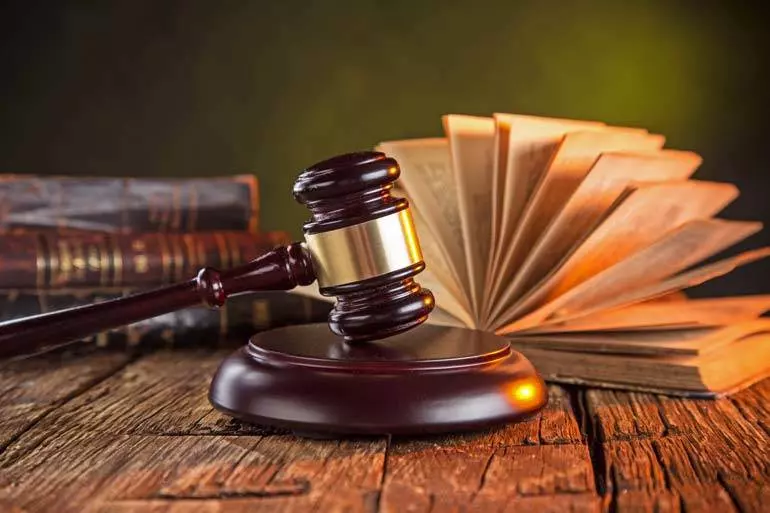Understanding the process that Florida appeal attorneys follow is essential when considering appealing a court decision. Appellate law operates under specific procedures distinct from trial court processes, focusing on reviewing legal errors rather than retrying the facts of the case. This article explains the critical steps in the appellate process in Florida, providing insight into how appeal attorneys handle appeals.
What is the Role of a Florida Appeal Attorney?
Florida appeal attorneys specialize in reviewing cases from a legal standpoint to determine whether the law was applied correctly during the trial. Their primary responsibility is not to introduce new evidence but to focus on the trial court’s record and identify errors that may have affected the outcome of the case. Appeal attorneys possess specialized skills in legal analysis, brief writing, and oral argumentation, making them uniquely qualified for appellate work.
Steps in the Florida Appellate Process
1. Filing the Notice of Appeal
The first step in the appellate process is to file a Notice of Appeal. This document formally notifies the court and the opposing party that you intend to appeal the trial court’s decision. In Florida, the notice must be filed within 30 days of the final judgment or order. Missing this deadline can result in losing the right to appeal, so timing is critical.
2. Preparing the Appellate Record
Once the Notice of Appeal is filed, the next step is to prepare the appellate record. This record consists of all documents, motions, evidence, and transcripts from the trial court that are relevant to the case. The appellate court will rely on this record to determine if any legal errors occurred. Florida appeal attorneys meticulously review these materials to pinpoint areas where the trial court may have made mistakes in applying the law.
3. Writing the Appellate Briefs
A significant portion of appellate work involves writing briefs. The initial brief is the first document submitted by the appellant (the party appealing the case). This brief outlines the legal errors made during the trial and argues why the appellate court should reverse or modify the decision. The appellee (the opposing party) then submits an answer brief, defending the trial court’s decision. Finally, the appellant may submit a reply brief to address arguments raised in the answer brief.
Appellate briefs are highly structured documents, requiring a thorough understanding of the law, precedents, and relevant statutes. Appeal attorneys must craft compelling, well-reasoned arguments in these briefs to persuade the court to rule in their client’s favor.
4. Oral Arguments
After the briefs are submitted, the court may schedule oral arguments. During these hearings, both attorneys present their cases to a panel of judges and answer questions. Oral arguments allow appeal attorneys to clarify points made in the briefs and respond directly to the judges’ concerns. While not all cases involve oral arguments, they are a critical part of the process when they occur, giving attorneys an opportunity to emphasize key issues and respond dynamically to the court.
5. The Appellate Court’s Decision
Once the oral arguments are complete (if applicable), the appellate judges will deliberate and issue a written opinion. This opinion will either affirm, reverse, modify, or remand the case. If the decision is affirmed, the trial court’s ruling stands. If reversed, the appellate court may issue a new judgment, or the case could be sent back to the trial court for further proceedings (remanded).
Key Considerations in the Florida Appeal Process
Timeframe for Appeals
The appellate process in Florida can take several months to over a year, depending on the complexity of the case and the court’s caseload. It is important to recognize that appeals require patience, as the appellate court must thoroughly review the briefs and records before reaching a decision.
Standard of Review
One of the most critical aspects of the appellate process is the standard of review. This refers to the level of deference the appellate court gives to the trial court’s decision. Different issues on appeal may be reviewed under different standards. For example, questions of law (such as the interpretation of statutes) are usually reviewed de novo, meaning the appellate court looks at the issue with fresh eyes and without deference to the trial court. However, factual determinations made by the trial court are typically reviewed for “abuse of discretion,” meaning the appellate court will only overturn the decision if it was clearly unreasonable.
Limited Scope of Review
It’s important to understand that appeals are not a second trial. The appellate court does not re-examine the evidence or hear new testimony. Instead, the court’s role is to determine if legal errors were made that affected the trial’s outcome. This means the appeal attorney’s task is highly focused on the legal aspects of the case.
Likelihood of Success
Not all trial court decisions are successfully appealed. In fact, appellate courts often defer to the trial court’s findings, especially on matters of fact. The strength of an appeal depends on the attorney’s ability to identify and argue significant legal errors that are compelling enough to warrant a reversal.
How Florida Appeal Attorneys Help in the Process
Legal Strategy and Issue Identification
One of the most valuable contributions an appeal attorney makes is identifying the key legal issues that provide the best chance for a successful appeal. This requires a detailed review of the trial court’s record, legal research, and a strategic approach to narrowing down which issues should be raised on appeal.
Expertise in Appellate Brief Writing
Appellate briefs are the core of an appeal, and the quality of the brief can make or break the case. Appeal attorneys in Florida excel at crafting well-reasoned arguments that clearly explain how the trial court erred and why the appellate court should reverse the decision. Writing these briefs requires not only legal knowledge but also the ability to convey complex ideas persuasively.
Experience with Appellate Court Procedures
Appellate courts operate under different rules and procedures than trial courts. Appeal attorneys are well-versed in these unique procedures, ensuring that all filings are done correctly and within the required timeframes. Their familiarity with Florida’s appellate system helps avoid costly mistakes and procedural missteps that could derail the appeal.
The Importance of a Skilled Florida Appeal Attorney
Navigating the appellate process in Florida is challenging and requires specialized legal expertise. A skilled Florida appeal attorney is essential for handling the complexities of filing, briefing, and arguing an appeal effectively. With a focus on legal errors and a strategic approach to case presentation, these attorneys provide the best chance for a successful outcome. Understanding the processes they follow will help you be better informed and confident in your choice of appellate counsel.
The Future of John Wick: How Chapter 4 Sets the Stage for the Rest of the Franchise



